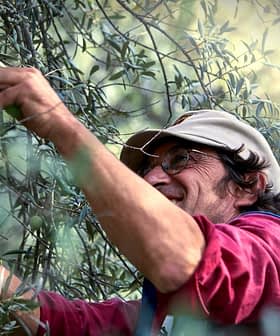Climate change is shifting the established pattern of cultivations in Europe, favoring the northern countries over the southern, the German broadcaster Deutsche Welle (DW) said in a report.
Climate change is posing a risk for the sustainability of vineyard management at a global scale and, particularly, in Europe.
Warmer weather is making its way to the north decreasing the frost periods and increasing growing seasons, while weather conditions resembling tropical climates are shaping in the south bringing more problems to the agricultural sector.
Northern have started to capitalize on the trend by growing typical crops of the south. Orchards of apricots and nectarines have already appeared in the state of Lower Saxony in northern Germany, and vineyards continuously expand in size in countries like Denmark and Sweden.
In the U.K., the country’s wine industry has quadrupled its production during the last 20 years cashing in on a milder climate, although with the price of facing extreme weather phenomena more often.
“Unpredictable weather events, droughts and intense summer storms are a real problem and seem to have increased in frequency,” said Jon Fletcher, a wine producer based in the U.K. “This year we have already had the sunniest May on record and no rainfall for two months, so the unpredictable weather continues.”
Traditional crops of the south, on the other hand, have begun to suffer significant losses under the increasingly tropical-like climate of the Southern European countries.
“Climate change is posing a risk for the sustainability of vineyard management at a global scale and, particularly, in Europe,” said Josep Maria Sole of VISCA, an EU-funded project for helping wine producers in Europe adapt to new challenges. He added that intense heat and droughts will pose a serious threat to Europe’s wine industry in the coming years.
Αdverse weather is a menace for the olive oil sector as well. Italy lost more than half of its 2018 harvest due to colder than usual weather, with an accumulated financial loss of approximately €1 billion ($1.19 billion), DW said in its report.
This fall, rough weather of heavy rains and hailstorms around the country has already taken a toll on olive trees among other crops.
In advance, pathogens like the fruit fly take advantage of the warmer winters to invade new territories, threatening the olive oil industry of Europe, explained Blaz Kurnik, an expert on climate change at the European Environment Agency (EEA).
“In the worst-case scenario, up to 80 percent of [Italy’s] olive trees will be affected by this every year,” Kurnik noted.
Some farmers around the Mediterranean have opted for tropical species instead of indigenous crops, especially in Italy where orchards of avocados and papaya spring up in traditional olive oil making territories like Sicily, Puglia and Calabria.
“The favorable climate of many areas in the Mediterranean basin is promoting tropical fruit cultivations,” Vittorio Farina, an associate professor of agriculture at the University of Palermo, said. “In fact, the predominant mango and avocado production is concentrated in tropical countries, but recently its cultivation has spread outside the traditional geographical regions to the Mediterranean basin and in particular in Egypt, Israel, South Africa, Europe, mainly Spain and Italy.”
In Spain, however, scientists focus more on adapting the existing varieties to the altering weather than introducing new kinds of crops.
“There already is the possibility to adapt the variety without changing the [main] crop in the short to medium term,” Margarita Ruiz-Ramos, an associate professor at the Polytechnic University of Madrid, said. “It’s a compromise between different needs. And that’s why it’s not so obvious as to just bring in some African crops.”









